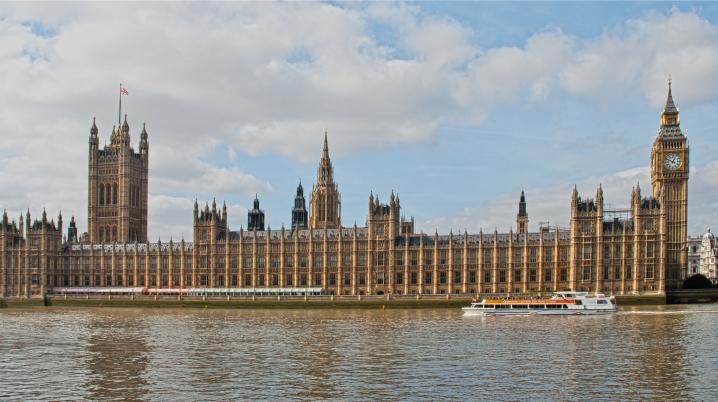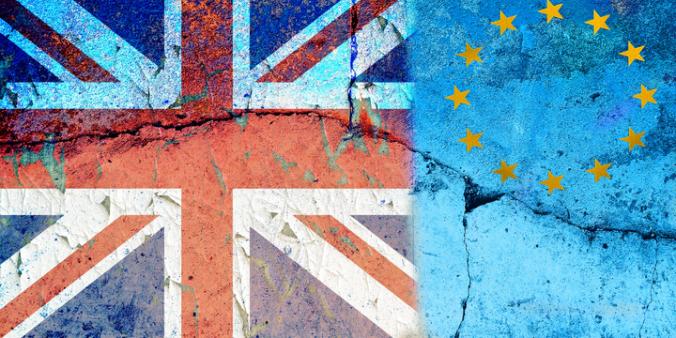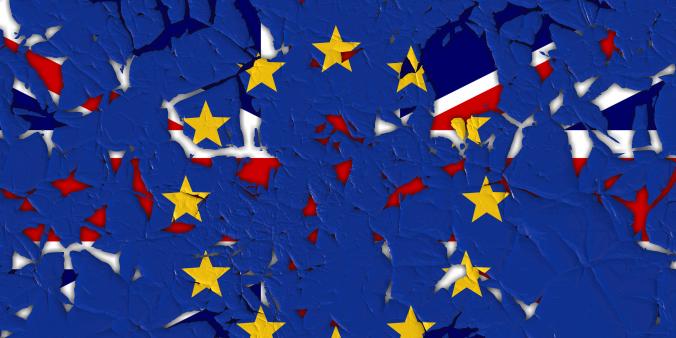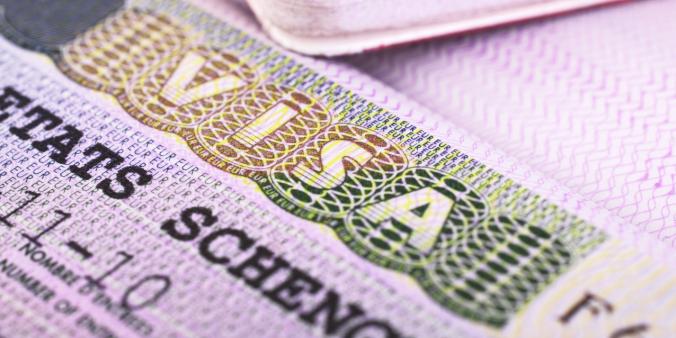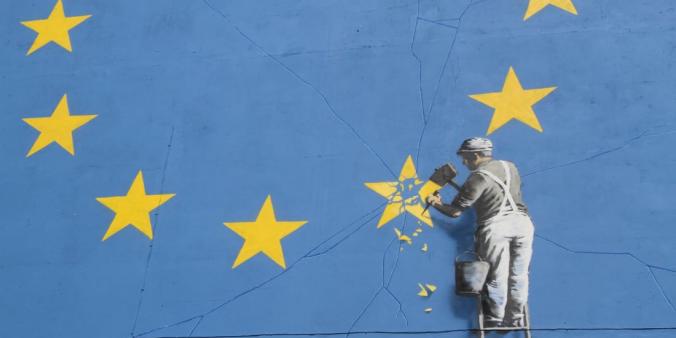
DutchCulture’s most recent event on Brexit in February 2020, took place in a vastly different context than the first one in March 2019. Whereas last year the departure of the United Kingdom from the European Union was an unresolved case, it has by now become a certainty. After a 47-year membership, the UK is no longer a member and for instance is no longer part of the EU’s institutions and the European Parliament. In terms of laws and regulations, we find ourselves in a transition period during which EU laws and rules will remain in effect until 31 December 2020. As a result, almost nothing will change in 2020. Before the end of the transition period the EU and the UK plan to make new agreements for the time after 31 December 2020.
Exit agreement
This means that effectively, on 1 January 2021, everything will really change. Although the extent and the effects of the changes will only reveal themselves during the negotiations between the EU and the UK, who will try to come to an exit agreement before the end of this year. What is certain, however, is that the freedom of movement of people, goods and services across the English Channel will not be as evident as it was before.
This will very likely result in significant consequences for international cultural exchange between the European continent and the United Kingdom. For example, immigration laws will likely complicate the settling and resettling of UK nationals in the Netherlands and vice-versa, as well as the ease with which individuals will be allowed to temporarily perform, study, research and work across the EU-UK border. The transportation of artwork and installations, set pieces and equipment will require administrative efforts that were previously unknown. Insurance and social security coverage will change, as well as methods of reverse charging VAT.
Continuing cooperation
Despite these new barriers and hurdles, however, DutchCulture and many other organisations and individuals working across the EU-UK border agree that cooperation must continue. A joint statement from the European Cultural Foundation, the Goethe Institut, the British Council and several others, signed by DutchCulture, expresses it as follows:
“We consider Brexit an igniting moment in time that creates a new positive sense of urgency and forges a renewed commitment to building and strengthening shared European cultural spaces, of which the UK has always been and will always be part.”

Event: Answers after Brexit
In the wake of this message, and aiming to support those who will continue working in or with the UK in any shape or form, DutchCulture organised the event Answers after Brexit on February 5. Experts gathered to answer questions on what is needed to continue good relations between the Dutch and British cultural sectors.
In his keynote speech, senior policy officer from Task Force Brexit at the Ministry of Foreign Affairs Rogier van Tooren emphasises the fact that a lot will change after 31 December 2020. Although the extent to which things will be different still depends on the negotiations, Van Tooren underscores the fact that whatever the outcome of these negotiations, doing business with the UK will be more complicated than before. On the whole, there will be more friction: extra forms to fill in, extra permits and permissions necessary. More friction means more time and more costs will be necessary to continue doing business as usual.
In the negotiations, the EU will aim for as little friction as possible, but a certain amount is unavoidable. However, there is no need to be taken by surprise. There is much that organisations and individuals can already do to make sure they are prepared. If you anticipate well, you will be able to efficiently find solutions and react to the effects of Brexit.
One of the measures you can take is the Brexit Impact Scan, developed by the Dutch government . It consists of a step-by-step menu that tells you in what way the Brexit will affect your organisation or you personally. Visit Brexitloket to take the scan.
In this article we will look in to the most pressing questions concerning the future collaborations between UK and EU based artists and organisations.
FAQs
- I have UK-passport holders working for my organisation. Will they be able to continue working for me?
-
- Yes. Under the provisions of the Withdrawal Agreement, there is a transition period after Brexit from 1 February 2020 up to and including 31 December 2020. During this period, UK citizens in the Netherlands keep their existing rights. They do not need a residence document to continue living in the Netherlands, just a valid passport. Everyone currently living in the Netherlands as a UK citizen falls under the Withdrawal Agreement made between the EU and the UK. All UK nationals residing in the Netherlands will be invited by the IND to submit an application for residence. And, if approved, will receive a new residence document. The IND will send an invitation letter to around 45,000 UK nationals in the Netherlands and their family members who are correctly registered in the Personal Records Database (Basisregistratie Personen or BRP) at their town hall. Read more about this on ind.nl/brexit
- The situation for Dutch citizens currently living in the UK is similar. If you can prove you are living/working in the UK until 31 December 2020, you fall under the Withdrawal Agreement, which means you can qualify for a residence permit in the UK. For more information, please visit gov.uk/transition.
- What if I am an EU citizen planning to move to the UK after 31 December 2020? Or what if I am a UK citizen planning to move to the EU after 31 December 2020?
-
- If you plan to move to EU or UK territory after 31 December 2020 without holding a (permanent) residence permit to that territory, you will have to go through the immigration procedures of the country of your intended stay. Although the exact conditions of immigration are still to be decided, it is wise to assume that the Netherlands will treat UK citizens as non-EU foreign nationals, meaning that immigration for non-EU nationals rules apply. This for instance means that UK citizens will have to have employment before applying for a residence permit. In the case of being employed by an employer, the employer will have to apply for a residence and work permit on the UK citizen’s behalf. This may, depending on the type of job and the employer, be a challenge. In the case of self-employment, the UK citizen must proof their ‘business’is of Dutch economic interest, which is a difficult test normally. For more information on resident and work permits in the Netherlands, please visit the pages Working in the Netherlands and Visas and Staying in the Netherlands.
- The situation for Dutch and other EU citizens moving to the UK after 31 December 2020 will be similar. They will likely have to go through regular UK immigration procedures in order to work and live in the UK. For more information, visit gov.uk.
- Will I need a visa when visiting the UK? Or will UK visitors need a visa to enter the Netherlands?
-
- Currently, visitors from non-EU high-income countries can travel to the EU and to the UK without the need of a visa, as long as people are not working in the country of destination. The EU is planning on implementing an electronic visa waiver system for non-EU visa-exempt visitors similar to the American ESTA system called ETIAS. It is possible that the UK might implement a similar electronic visa waiver system in due time as well.
- For the UK, visitors are allow to stay and work in the UK for up to 1 month to “take part in arts, entertainment or sporting activities.” However, to do this one must apply for a so-called Permitted Paid Engagement visa. These are currently the rules for artists going to the UK from non-EU countries and it is likely that EU artists will need to have a Permitted Paid Engagement visa before doing any kind of paid work in the UK. For more information on this, visit gov.uk.
- When visitors come to the Netherlands or to the UK with the purpose to work in arts and culture a work permit requirement applies. In the Netherlands, however, (note, this is only for the Netherlands) individuals with certain artistic professions are exempted from a work permit requirement if they come to work for a maximum of 6 weeks within a period of 12 weeks. For details check our page Working in the Netherlands.
- When temporarily working in the UK as a Dutch citizen, will I still be covered by the social security system from the Netherlands?
-
- Yes, you will be covered during the transition period. At this time it is not known if any new agreements will be reached to enable this to be the case after 31 December 2020. Within the EU, employed or self-employed workers can easily be posted to another EU member-state using an A1/certificate of coverage to make sure someone is still covered by the social security scheme of the sending state when temporarily working abroad. Because the A1/certificate of coverage is an EU agreement, it is still uncertain what will be necessary for persons to temporarily work between the EU and the UK safely after 31 December 2020. I you have an A1/certificate of coverage with validity beyond 31 December 2020, the Sociale Verzekeringsbank (SVB) will automatically keep you up-to-date about the validity of the A1/certificate of coverage. Also check out the SVB’s frequently asked questions on Brexit.
- Will I be covered by my health insurance when travelling to/from the UK after 31 December 2020?
-
- This will depend on your specific health insurance and/or travel insurance. The automatic EU EHIC coverage that is currently in place will no longer be valid. Please contact them and see if you need additional travel insurance to make sure you are fully covered.
- What will change for the transportation of goods across the EU/UK border?
-
- Many things. Artwork, vinyl & cd’s, merchandise, props, set-pieces, technical equipment: Brexit means the end of the free flow of goods between the UK and the European continent. Goods brought in temporarily or with the intent to sell them need to be declared and provided with admission documents. You will need a so-called EORI-registration number and will need to be able to declare goods, for instance with the help from a customs agent (douane expediteur). For more information, look at this helpful page and consult Brexitloket.nl and gov.uk. When exporting goods, it is important to distinguish between temporary and permanent export:
-
Temporary export: for instance props or set-pieces for a performance, musical instruments over a certain value. Although negotiations may result in a new agreement on temporary export, it can be assumed that from 2021 onwards an ATA Carnet will be needed for temporary export of goods between the UK and the EU. An ATA Carnet can be applied for with the Kamer van Koophandel (exporting from the Netherlands) or with the London Chamber of Commerce and Industry (exporting from the UK).
-
For rules surrounding the temporary exchange of artworks and antiques between the UK and the Netherlands, keep an eye on this page.
-
Export with the purpose to sell: for instance vinyl, cd’s, merchandise, (art)books and magazines. Depending on the type and quantity of the produce you may be subject to paying VAT and third-country import duties. For more information visit Brexitloket.
-
- Many things. Artwork, vinyl & cd’s, merchandise, props, set-pieces, technical equipment: Brexit means the end of the free flow of goods between the UK and the European continent. Goods brought in temporarily or with the intent to sell them need to be declared and provided with admission documents. You will need a so-called EORI-registration number and will need to be able to declare goods, for instance with the help from a customs agent (douane expediteur). For more information, look at this helpful page and consult Brexitloket.nl and gov.uk. When exporting goods, it is important to distinguish between temporary and permanent export:
- If my services are taxed in the UK (for instance in performing arts), will I be able to deduct these in my annual tax returns in the Netherlands to avoid double taxation the way I used to?
-
- Yes. Unlike VAT, laws on income tax are not harmonised within the EU but depend on bilateral tax agreements. The Brexit has no influence on the bilateral tax treaty between the Netherlands and the UK. For more information on preventing double taxation in the international performing arts sector, check out The Ultimate Cookbook for Cultural Managers: Artist Taxation in an International Context by PEARLE.
Preparation and collaboration
There is no doubt that Brexit will change the way in which the Netherlands and the United Kingdom will collaborate in the future. It is important that organisations in arts and culture in the Netherlands collaborating with the United Kingdom do not underestimate this. However, it is perhaps even more important not be put off by the administrative barriers of collaboration. Collaborations are dependent on the preparation and will of individuals and organisations.
Roel van de Ven, head of the cultural department of the Embassy of the Kingdom of the Netherlands in London, assures us that UK organisations in arts and culture are very determined to continue cooperation across borders. If the will to collaborate is strong, then obstacles are easily overcome. With or without Brexit, we remain each other’s North Sea neighbours.
The information in this article is based on the presentations and contributions by the speakers and panellists during Answers After Brexit in Pakhuis de Zwijger on 5 February 2020: Rogier van Tooren (Senior Policy Officer, Taskforce UK/Brexit, Ministry of Foreign Affairs), Roel van de Ven (Cultural Deparment, Embassy of the Netherlands in London), Arnoud Breitbarth (editor of the publication North Sea Neighbours, lyricist, composer and playwright), Dr Janice McNab, (artist and head of MA Artistic Research, The Royal Academy of Art, The Hague), Susanne Mooij (Co-founder and Partner at Adam & Wolf Immigration Lawyers).
Disclaimer
Additional research and information is gathered and edited by Michiel van der Padt of DutchCulture’s Mobility Info Point. Please be aware that information on Brexit changes frequently and that the information provided in this article cannot serve as a legal basis for any type of action and no rights can be derived from it. For up to date information, always refer to the government websites linked in this article.
If you are a cultural professional who wants to go to the UK, feel free to contact our UK advisor Tijana Stepanovic. If you have more questions about mobility in general, including with the UK, please contact DutchCulture’s Mobility Info Point.
For funding possibilities, check out our Cultural Mobility Funding Guide or the websites of our partners Creative Industries Fund NL, Dutch Film Fund, Dutch Foundation for Literature, EYE International, Het Nieuwe Instituut, Mondriaan Fund, Performing Arts Fund, and the Embassy of the United Kingdom of the Netherlands in London.
